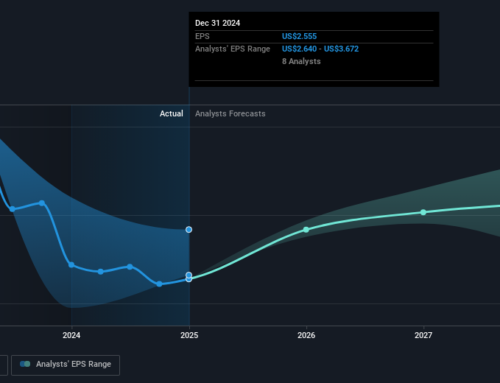Investing in Australian Finance Group (ASX:AFG) five years ago would have delivered you a
April 29, 2025
The main point of investing for the long term is to make money. Furthermore, you’d generally like to see the share price rise faster than the market. Unfortunately for shareholders, while the Australian Finance Group Limited (ASX:AFG) share price is up 26% in the last five years, that’s less than the market return. Some buyers are laughing, though, with an increase of 21% in the last year.
Now it’s worth having a look at the company’s fundamentals too, because that will help us determine if the long term shareholder return has matched the performance of the underlying business.
Our free stock report includes 2 warning signs investors should be aware of before investing in Australian Finance Group. Read for free now.
While markets are a powerful pricing mechanism, share prices reflect investor sentiment, not just underlying business performance. One imperfect but simple way to consider how the market perception of a company has shifted is to compare the change in the earnings per share (EPS) with the share price movement.
During five years of share price growth, Australian Finance Group actually saw its EPS drop 7.3% per year.
The strong decline in earnings per share suggests the market isn’t using EPS to judge the company. Given that EPS is down, but the share price is up, it seems clear the market is focussed on other aspects of the business, at the moment.
We note that the dividend has not increased, so that doesn’t seem to explain the increase, either. But it’s reasonably likely that the 12% annual compound revenue growth is considered evidence that Australian Finance Group has plenty of growth ahead of it. In that case, the company may be sacrificing current earnings per share to drive growth.
You can see below how earnings and revenue have changed over time (discover the exact values by clicking on the image).
This free interactive report on Australian Finance Group’s balance sheet strength is a great place to start, if you want to investigate the stock further.
As well as measuring the share price return, investors should also consider the total shareholder return (TSR). The TSR incorporates the value of any spin-offs or discounted capital raisings, along with any dividends, based on the assumption that the dividends are reinvested. Arguably, the TSR gives a more comprehensive picture of the return generated by a stock. We note that for Australian Finance Group the TSR over the last 5 years was 76%, which is better than the share price return mentioned above. This is largely a result of its dividend payments!
We’re pleased to report that Australian Finance Group shareholders have received a total shareholder return of 27% over one year. And that does include the dividend. That gain is better than the annual TSR over five years, which is 12%. Therefore it seems like sentiment around the company has been positive lately. Someone with an optimistic perspective could view the recent improvement in TSR as indicating that the business itself is getting better with time. I find it very interesting to look at share price over the long term as a proxy for business performance. But to truly gain insight, we need to consider other information, too. Case in point: We’ve spotted 2 warning signs for Australian Finance Group you should be aware of, and 1 of them can’t be ignored.
We will like Australian Finance Group better if we see some big insider buys. While we wait, check out this free list of undervalued stocks (mostly small caps) with considerable, recent, insider buying.
Please note, the market returns quoted in this article reflect the market weighted average returns of stocks that currently trade on Australian exchanges.
Have feedback on this article? Concerned about the content? Get in touch with us directly. Alternatively, email editorial-team (at) simplywallst.com.
This article by Simply Wall St is general in nature. We provide commentary based on historical data and analyst forecasts only using an unbiased methodology and our articles are not intended to be financial advice. It does not constitute a recommendation to buy or sell any stock, and does not take account of your objectives, or your financial situation. We aim to bring you long-term focused analysis driven by fundamental data. Note that our analysis may not factor in the latest price-sensitive company announcements or qualitative material. Simply Wall St has no position in any stocks mentioned.
Terms and Privacy Policy
Search
RECENT PRESS RELEASES
Related Post




